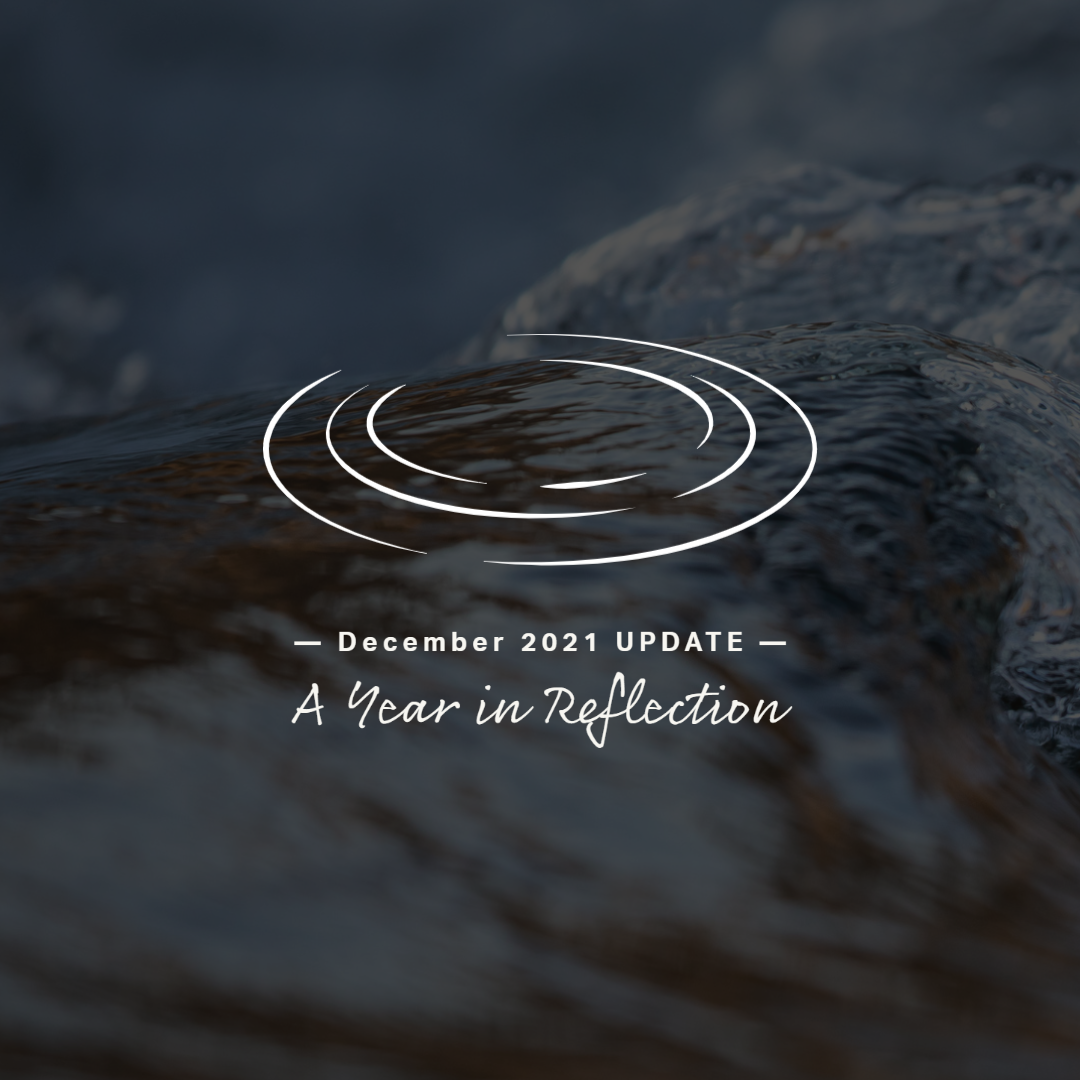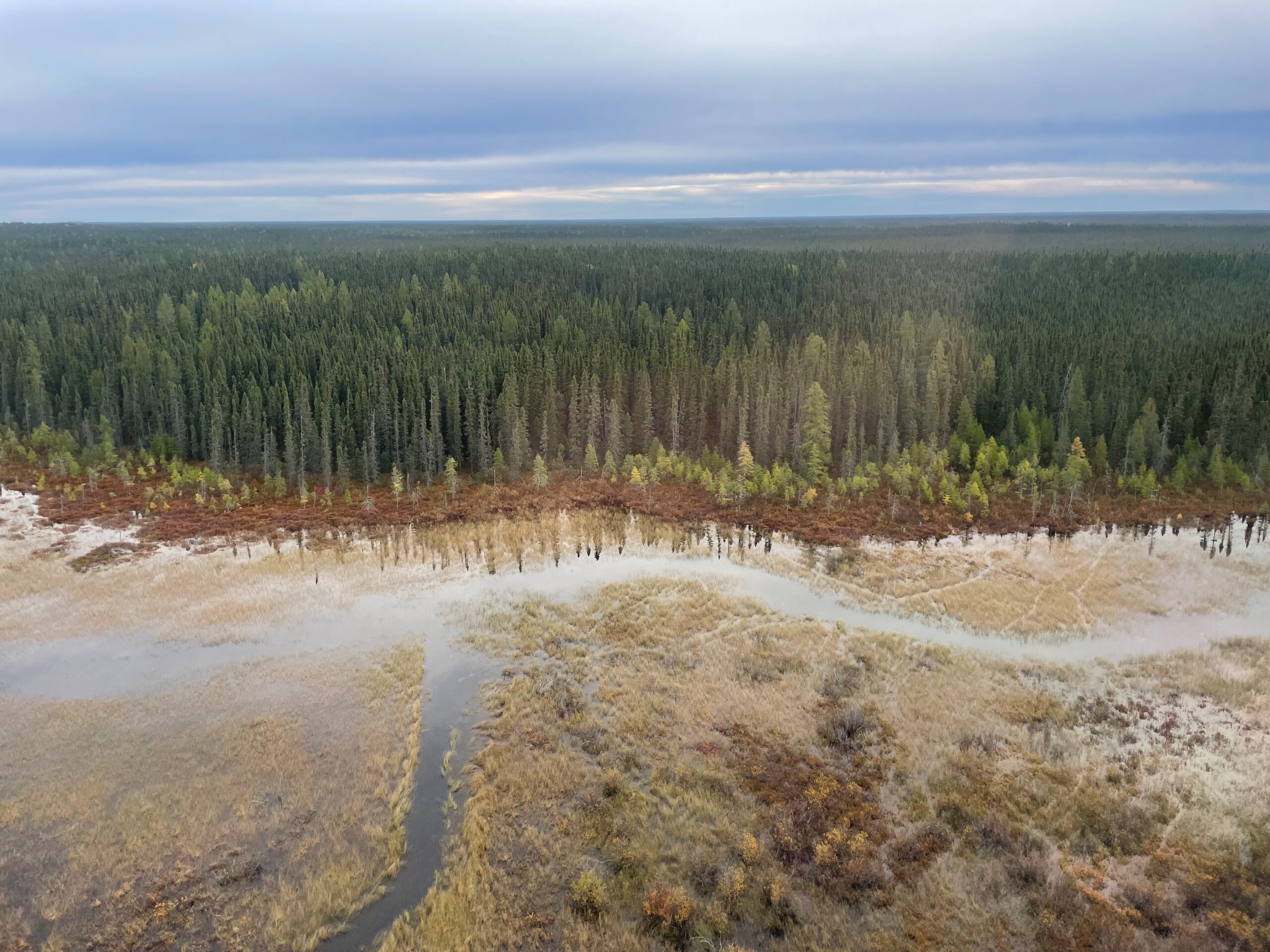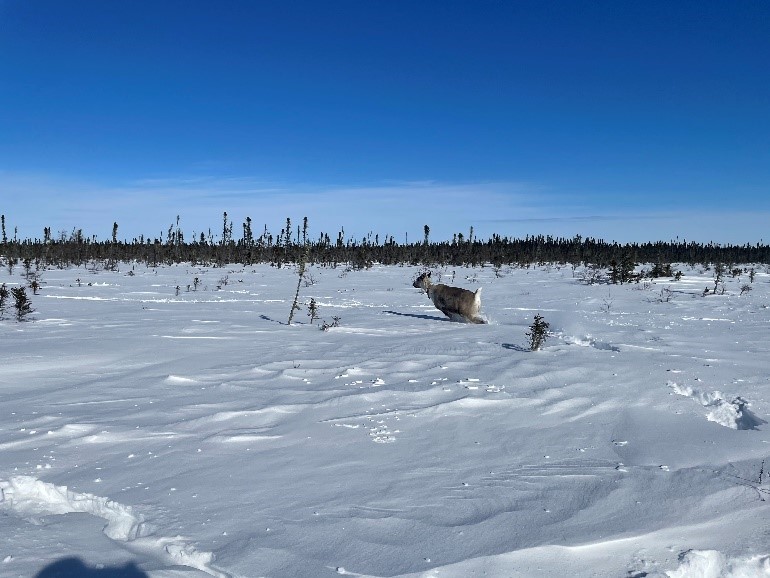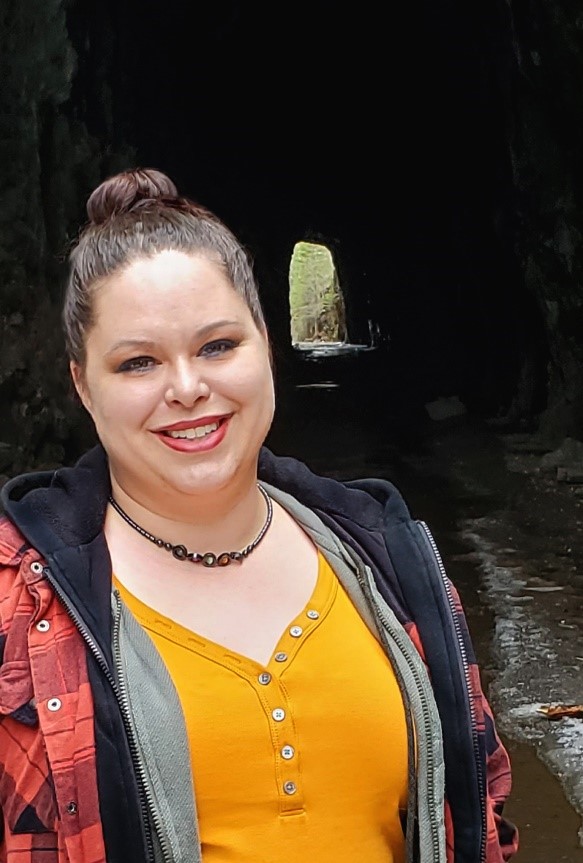Welcome to the MFFN Community Access Road (CAR) December e-blast with updates on current and upcoming activities. In this e-blast you will learn about:

.
2021 Highlights
2021 has been a difficult year for many people and communities; throughout the year, we’ve weathered challenges imposed by COVID-19, various States-of-Emergency and regional and localized forest fires. As the year reaches a close, we’d like to thank you for the time you have taken to review the information we provided about our proposed Community Access Road, and for the insights you have given us. We appreciate your perspectives and know that your feedback helps strengthen the decisions we make through the planning process.
Despite these challenges, we have accomplished a lot over the year. Here are some key highlights from the Community Access Road Project:
- Meetings and Discussions with Indigenous communities, government agencies and interested persons: Thank you to everyone who has been and continues to be interested in the Community Access Road, and for your feedback, questions, comments and concerns. We’ve had multiple virtual meetings during 2021 and look forward to continued discussions in the new year.
- Indigenous Knowledge Program: Early in 2021, we developed an Indigenous Knowledge Program Fact Sheet, and distributed an updated Study Area Memo and an Indigenous Knowledge Program Guidance Document that contains tools and resources to support communities in collecting and sharing this important information. In 2022, we will collect data with communities that are part of the program, and continue to reach out to communities who have expressed interest in setting up the Data Sharing and Funding Agreements that support this work and facilitate the implementation of the Indigenous Knowledge Program. Learn more about the Indigenous Knowledge Program: https://www.martenfallsaccessroad.ca/indigenous-knowledge-program/
- Terms of Reference Approval: In October, the Ministry of the Environment, Conservation and Parks (MECP) Minister Honourable David Piccini approved the Terms of Reference with amendments. On October 29, 2021, the Community Access Road entered the Environmental Assessment phase of the provincial process with the release of the Notice of Commencement for the Environmental Assessment. Learn more here.
- Valued Component Videos: We created a new multimedia webpage to showcase the valued components we are studying in the Environmental Assessment and Impact Assessment. Videos are now available for groundwater, surface water, fish and fish habitat, vegetation and hooved animals (i.e., caribou / atigwag and moose / moozoog), with more to come in the new year. These videos will help Indigenous communities and interested persons understand technical work on the Project and supports consultation efforts.
- Valued components are topics being studied as part of the Environmental Assessment and Impact Assessment to understand how they may be affected by the proposed Community Access Road.
- Youth Engagement Program: To honour youth participation in decisions that will impact their future and acknowledge their unique perspective, we held a Youth Engagement Program in MFFN community in November.
- Field Studies: In advance of the field studies, we distributed Discussion Guides to Indigenous communities asking key questions for input to help shape our program plans. We also followed up with notices once dates for the program were confirmed.
Here’s a highlight of 2021 field programs:
- Caribou Collaring: Collars were placed on 30 adult female caribou in the local study area by wildlife professionals in February. Data will be collected for three years.
- Surface Water and Fish & Fish Habitat: In September, 14 water crossings were visited by field crews to assess water, sediment, benthic invertebrates (organisms that live at the bottom of lakes, rivers and streams—like a crayfish), fish habitat and fish communities.
- Bat Acoustic Monitoring: 17 autonomous recording units were deployed for three months to collect data on bat activity. Units were retrieved in September.
- Air Monitoring: An air monitoring device was installed in MFFN in May 2021 to collect hourly data on air quality. Data will continue to be collected until May 2022.
- Vegetation: In September, a field crew completed 122 vegetation surveys, including 24 ground-based surveys and 98 visual surveys from a helicopter. Surveys will continue in 2022.
- Remote Cameras: Remote cameras were deployed in June and will collect important information on the presence and seasonal patterns of caribou (atigwag), moose (moozoog), wolves and other wildlife for two years.


In early 2022, we will continue to consult and engage on the Community Access Road. An Engagement Survey--to understand interests and how best to communicate and engage--will kick-off our efforts in the new year. We will also follow up directly with communities to schedule update meetings and confirm interest in participating in the Indigenous Knowledge Program.
We want to hear from you. If you would like to schedule a time to meet with us to discuss the Community Access Road, please be in touch. Email us at info@martenfallsaccessroad.ca or call 1-800-764-9114.
.
Field Studies Update
Upcoming Field Studies
Below is a high-level overview of upcoming winter field study programs and their approximate timelines*:
- Furbearer Ground Track Surveys (January - February 2022): Transects, or straight lines through the study area, will be walked to identify tracks that will inform the distribution, abundance and density of furbearers (such as wolverines [Wishkobishag / wiingwa’waakeg] and martens [Wabizheshihwag / wabashtanang]), and mammals in the study area. Timing will be related to optimal snow conditions.
- Ungulate Aerial Surveys (January - March 2022): Aerial surveys will be conducted to observe signs of wildlife including moose (moozoog), wolves (maihganang) and wolverine (wishkbishag), and to gather population and distribution information on caribou (atigwag). Timing will be related to optimal snow conditions.
- Wolverine Hair Snag Surveys (February – May 2022): Hair snag traps will be placed in the study area to provide information about wolverine (wishkbishag) demographics (male / female).
- Ungulate Remote Camera Check (Winter 2022): Crews will finish the program started in early November to inspect and replace batteries and memory cards in remote cameras installed in June 2021. Cameras capture images of animals like moose (moozoog), caribou (atigwag) and bears (makwa’ang). This program will be completed with one of the other winter programs in an effort to reduce helicopter-use and crews.
A Field Notice for upcoming winter programs was distributed on December 8, 2021. If you have any questions, comments or feedback on the planned studies, we would like to hear from you (contact information below).
*Timelines and programs are approximate and may shift; we will provide updates as required.

.
Message from Larissa Stevens
“It is with mixed emotions that I announce that my last day on the project is December 17, 2021. I have worked with members of Marten Falls First Nation as part of the Marten Falls Community Access Road project since the development of the pre-cursor proposal document date May 2017. Over the years I have met and worked with so many wonderful people and learned so much about community history in the area known as the Ring of Fire and environmental assessments. I enjoyed supporting Marten Falls First Nation in advancing the Community Access Road Project, a critical piece of infrastructure for the community in face of climate change. I will cherish the memories made in Ogoki consulting and I wish the community all the best going forward.”

